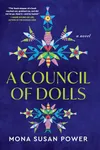Picture a storyteller who weaves Native American heritage with modern life, crafting tales that linger like a Dakota sunset—meet Mona Susan Power! A Standing Rock Sioux author born in Chicago in 1961, Power has enchanted readers with her lyrical novels and short stories. Her debut, The Grass Dancer, snagged the prestigious PEN/Hemingway Award, while her latest, A Council of Dolls, earned a National Book Award longlist spot, proving her voice resonates across generations.
With roots in the Yanktonai Dakota community and a childhood shaped by urban Native experiences, Power’s stories bridge cultures, blending history, spirituality, and resilience. Her work doesn’t just entertain—it illuminates the complexities of Indigenous identity, making her a vital figure in American literature.
The Making of Mona Susan Power
Born in Chicago to a Sioux activist mother, Susan Kelly Power, and a Euro-American father in publishing, Mona Susan Power grew up surrounded by stories and advocacy. Her mother helped found the American Indian Center of Chicago, while her grandmother, Josephine Gates Kelly, served as a tribal chairperson. This rich heritage fueled Power’s imagination. After earning degrees from Harvard College, Harvard Law School, and the Iowa Writers’ Workshop, she swapped law for literature, driven by a passion to tell Native stories with authenticity and heart.
Power’s early encounters were extraordinary—meeting Martin Luther King Jr. at age four and mingling at the Academy Awards as a teen. Yet, it was her connection to her Dakota roots and the vibrant Chicago Native community that shaped her storytelling, blending oral traditions with literary finesse.
Mona Susan Power’s Unforgettable Stories
Power’s debut novel, The Grass Dancer (1994), is a mesmerizing blend of historical and contemporary narratives, weaving Sioux spirituality with family legacies. Its critical acclaim and PEN/Hemingway Award marked Power as a literary force. Roofwalker (2002), a collection of stories and essays, explores Native identity in urban settings, showcasing her versatility.
Sacred Wilderness (2014) delves into love, loss, and cultural reclamation, with vivid characters navigating a fractured world. Her latest, A Council of Dolls (2023), is a multigenerational saga of three Yanktonai Dakota women, told partly through their cherished dolls. Longlisted for the National Book Award, it tackles the trauma of Indian boarding schools with stunning prose and hope. Power’s style—lyrical, authentic, and layered—merges Dakota traditions with universal themes, earning praise from authors like Amy Tan and Louise Erdrich.
Her short stories, published in The Atlantic Monthly, The Paris Review, and The Best American Short Stories, reflect her knack for crafting intimate, powerful narratives. Whether exploring generational trauma or cultural pride, Power’s work feels like a conversation with an old friend—warm, wise, and unforgettable.
Why Mona Susan Power Matters
Mona Susan Power’s impact lies in her ability to center Native American voices in mainstream literature. Her stories challenge stereotypes, revealing the full humanity of Indigenous people—flawed, resilient, and vibrant. By addressing historical traumas like boarding schools and massacres, she fosters healing while celebrating Dakota culture. Her work inspires readers to confront the past and embrace hope, making her a beacon for Native writers and allies alike.
Power’s fellowships—from the Iowa Arts Fellowship to the USA Artists Fellowship—reflect her influence. As an enrolled Standing Rock Sioux member, she continues to advocate for cultural preservation, ensuring Native stories endure.
- Born: 1961, Chicago, Illinois
- Key Works: The Grass Dancer, Roofwalker, Sacred Wilderness, A Council of Dolls
- Awards: PEN/Hemingway Award, Minnesota Book Award, High Plains Book Award
Snag A Council of Dolls and dive into Mona Susan Power’s lyrical world of Native resilience and heart!
